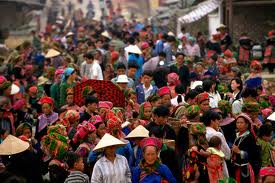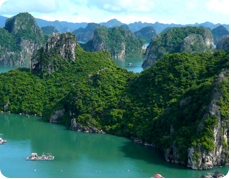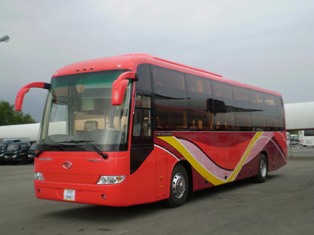Sapa Easy Trek & Visiting - Hotel Stay
Tour Code : HHT 03
3 Days/4nights - Daily Departure from Hanoi or Sapa
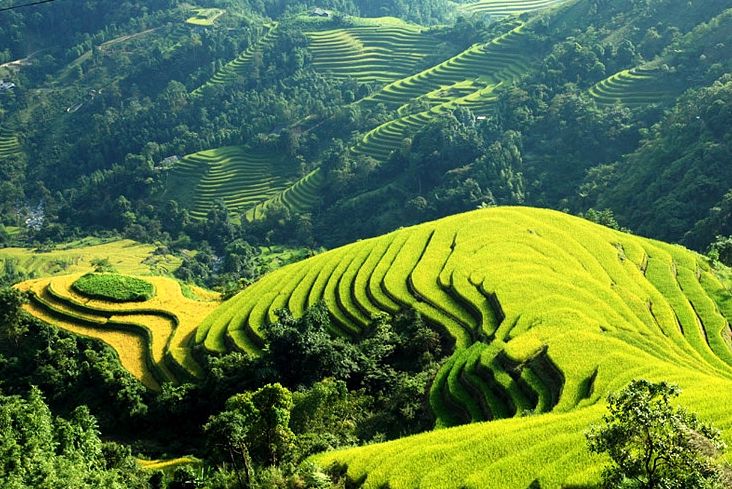
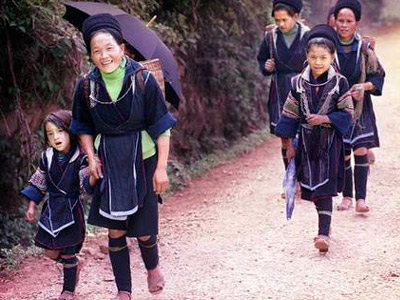
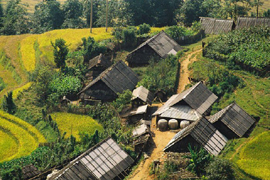
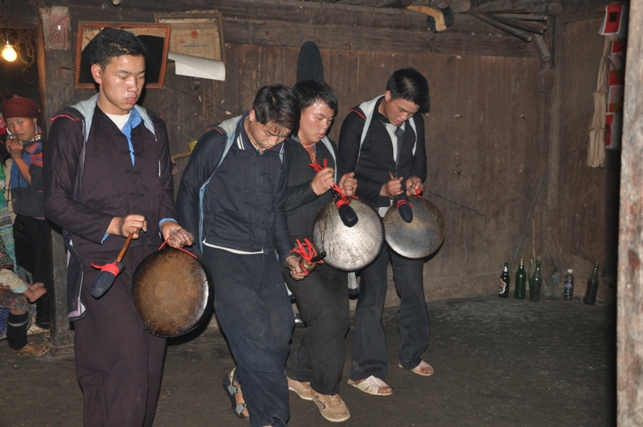
Itinerary:
Please, be ready at your hotel lobby at 19h.30 for a short transfer to Hanoi railways station for taking the overnight train (first class 4 beds cabin with air-condition) which arrive in Lao Cai city, near the Chinese border next morning.
Day 1 : Lao Cai -- Sapa and Surrounding
The train arrives at Lao Cai station early at about 06.00, meet your guide and driver as you check out and an hour transfer uphill the Hoang Lien Son mountains to Sa Pa. Great views of valleys and terraced rice fields along the way. After Breakfast your guide will show you around for a brief introduction of this charming town. At the market, ethnic minority people of different groups wearing their traditional costumes made by themselves comes every day selling local products includes vegetable, bamboo shoot, mushroom, medicinal herbs and souvenirs…there are chances for making acquaintance and taking photos. Later you will follow the footsteps uphill to the top of Ham Rong Mountain for over viewing beautiful scenery of the town and surrounding area, paying visit to an orchard garden and a mini museum which tells you a lot about ethnic minority people living in Sa Pa and the northwest region. The rest hours is at your leisure.
- Breakfast and Lunch included, Dinner on your own
- Accommodation: Hotel in Sapa
Day 2 : Visit Ta Phin Valley - Silver Waterfall - Tram Ton Pass Sapa Travel Package Vietnam
Today morning, you will visit Ta Phin commune 14 km southeast of Sapa town. Located in a large valley, surrounded by high mountains, which covered by pine trees and forest, Ta Phin Commune is home to the Red Zao and Black H’mong ethnic. Although living close to each other for years, these two ethnic peoples are very different: The H’mong are cheerful and open minded while the Red Zao are economical and reserved… Taking a short drive to the center of the valley, you will enjoy an easy walk following village path around the valley, paying visit to H’mong hamlets scattering from the bottom of the valley to higher mountain slopes. From high elevation, great view of the valley stretching under your foot. Continue your walk to the Red Zao village in which you will meet groups of women making handicrafts includes embroidered clothes, handbags… Transfer back to Sapa for Lunch and noon break. Afternoon, you will be picked up at about 14.00 and then drive up hill to see the famous Silver Waterfall and then onto Tram Ton, the highest mountain pass in Vietnam at 1,800 m above sea level for enjoying the magnificence of Hoang Lien Son Mountain Range as well as over viewing spectacular landscapes of the whole area, stretching endlessly. Transfer back to Sapa and relax.
- Breakfast and Lunch included, Dinner on your own
- Accommodation: hotel in Sapa
Day 3 : Tribal Villages visiting in Muong Hoa Valley - Night train to Hanoi
Today you will spend the whole day exploring the spectacular Muong Hoa, famed as the most beautiful valley in the region. A Jeep will take us out of the town, following the only road built on the side of a mountain range, looking down the valley, over viewing magnificent landscapes composed of high mountains, deep valleys, and stream of water winding, waterfalls and terraced rice paddies…Many time, leaving the main road, you will visit tribal villages such as Ta Van of the Zay, Su Pan of the Black H’mong, Ban Ho of the Tay…there are chances for meeting and contacting locals at home and at works. Leaving Ban Ho in late afternoon for journey back to Sapa, you have an hour for shower and packing before transfer down hill to Lao Cai station for taking the night train to Hanoi which arrives in Hanoi early at 05.30 to 06.00 next morning.
- Breakfast and Lunch included, Dinner on your own
- Overnight train in first class 4 beds cabin with air-conditioning
| Group Size | 2 - 3 Persons | 4 -6 Persons | 7- 10 Persons | Book it now |
|---|---|---|---|---|
| 2 star hotel | 270 | 245 | 230 | Booking now |
| 3 star hotel | 320 | 295 | 280 | Booking now |
| 4 star hotel | 395 | 375 | 350 | Booking now |
What's Included in the Tour Cost :
- English or French speaking guide (Surchage for French speaking guide $.10/day)
- Round Trip Train Tickets from Hanoi ( Deluxe Soft Sleeper 4Berth Cabin - 2berth Cabin requested and pay extra )
- Black Hmong porters (to carry food and luggage)
- Cook (from group sizes of 6 pax)
- All needed transport
- All indicated meals, plus snacks (B as breakfast; L as lunch; D as dinner)
- Water on the whole trip
- Sleeping bag and mattresses
- Waterproof bluebag for luggage
- Tents if needed
- Mosquito net
- All entrance fees and permit
- Overnight in local house or tent
What's Not Included in the Tour Cost :
- Personal Pocket Money
- Soft drink (beer, coca cola…)
- Insurance
- All other services not indicated above
What to bring :
- Sun Block
- Wide brim hat
- Camera + Film
- Comfortable shoes
- Rain gear
- Warm clothes
- Insect Repellent
- Original Passport
Sapa Vietnam
-- Located in North-West Vietnam , Sapa is the most attractive mountain place must be visited on any northern Vietnam itinerary. On a clear day you will treated to views of steeply terraced rice fields, towering verdant ridgelines, primitive mud-thatched villages, raging rivers and astounding waterfalls. Nestled high in the Tonkinese Alps near the Chinese border, Sape was built as a hill station during French colonial days, to serve as a respite from stifling Hanoi summers. These days, weekends are still the biggest draw in this crumbling hill-tribe center. Visitors from the capital flock to Sapa for a glimpse of the famed "Love Market," a trek to local hill tribe villages, or an ascent of Vietnam's highest peak, Fan Si Pan. Some eight ethnic groups inhabit Lao Cai province: Hmong, Dao, White Thai, Giay, Tay, Muong, Hao and Xa Pho. The most prominent in town are the Red Dao, easily identified by the coin-dangling red headdresses and intricately embroidered waistcoats worn by the women, and the Hmong, distinguished by their somewhat less elaborately embroidered royal blue attire.

Groups of ethnic Hmong youngsters and women can be seen hauling impossibly heavy, awkward baskets of wood, stakes, bamboo, bricks, mud and produce. Deep in the valleys surrounding Sapa, the Muong Hoa River sluices a wild, jagged course among Giay, Red Dao and White Thai settlements, their tiny dwellings poking out of the neon rice fields like diamonds on a putting green. One- to four-day treks are offered by a handful of outfitters. Guests sleep in tents or in the homes of villagers, their gear hauled by Hmong porters. Be warned: Despite what the local innkeepers will tell you, both the Hmong and the Dao really do not enjoy having their photographs taken unless they're paid for it. It's a certainty that any brochure you see of smiling, care-free ethnic hill people was shot under a Screen Actors Guild contract.
Sprawling near the banks of a river, Can Cau Market is a clearly defined shantytown, packed with crude stalls covered with thatched roofs. The start of a few simple settlements can be seen high above, many of whose residents now make their weekly pilgrimage to the market. We are only 9kms from the Chinese border and some traders make the journey across from China on horseback. Unfortunately foreigners are not allowed to reciprocate this set-up, however tempting it may seem. By 9 am, the market is crammed to capacity. It's lively and surprisingly fun. The locals are mostly of the Flower Hmong minority group. You can't miss them -their traditional costume of green checked headdress and multi-colored, meticiculosly stitched and layered garments are simply stunning. Few foreigners make it to Can Cau; those that do brave the journey come either with a small tour group in four-wheel drives, or - if half-mad and on a tight budget like me -on the back of a motorbike.

The handful of Westerners here this morning are the object of intense - though friendly- scrutiny. There is much laughter as we try to make basic conversation. Although the majority are painfully shy and not accustomed to seeing foreigners, some cheerfully allow photographs to be taken.
